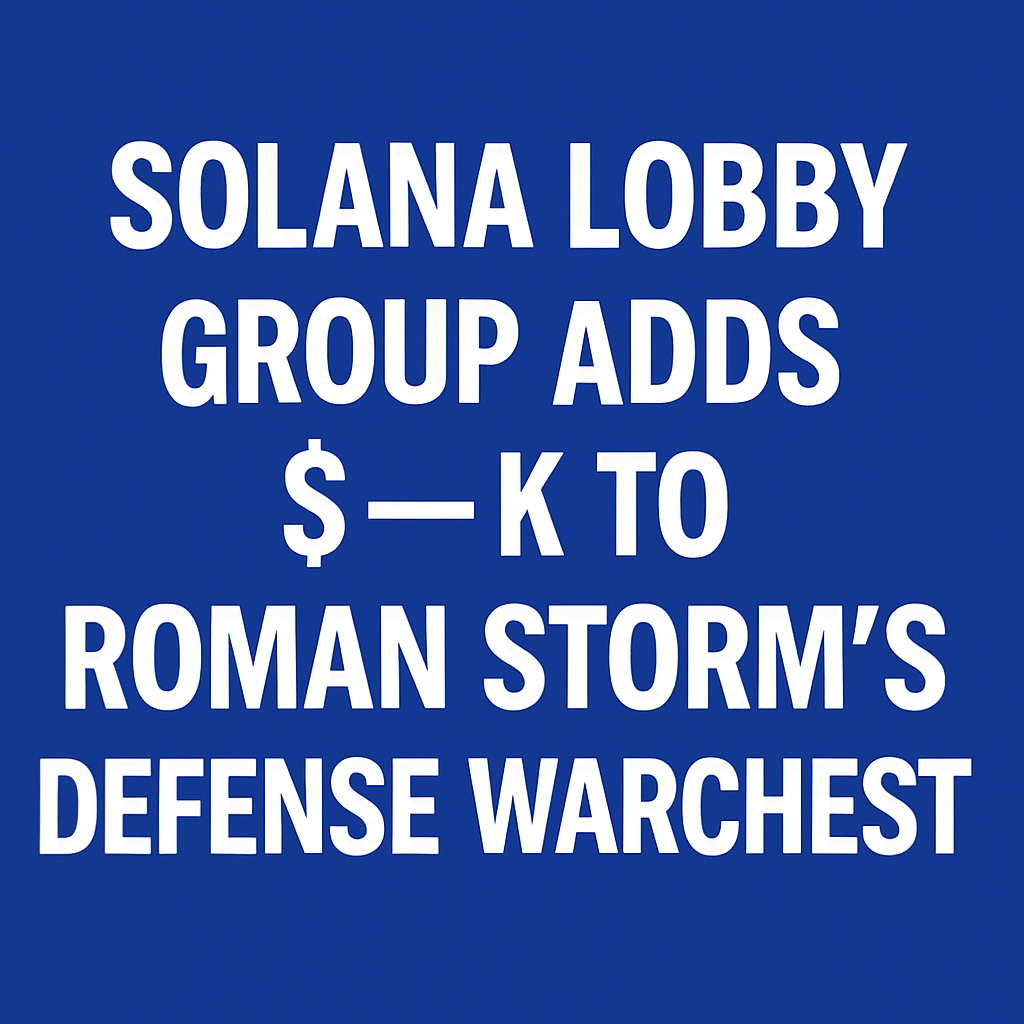Overview
The Solana Policy Institute, a nonprofit organization dedicated to advocacy for the Solana blockchain, pledged $500,000 to the Free Roman Storm legal defense fund. The fund assists Tornado Cash co-founders Roman Storm and Alexey Pertsev in post-conviction appeals. Community contributions have already surpassed $5.5 million toward a multistage target of $7 million. Continued support underscores industry concern over liability for open-source developers.
Case Background
Roman Storm was convicted on August 6 of operating an unlicensed money-transmitting business, marking a landmark ruling against protocol developers. Alexey Pertsev faced a separate conviction in 2024 for money laundering related to Tornado Cash. Both cases hinge on allegations that code authors bear responsibility for third-party misuse. Legal experts warn that such interpretations threaten neutral software development.
Funding Developments
The Solana Policy Institute’s contribution builds on earlier commitments by ecosystem stakeholders. Federico Carrone, an Ethereum core developer detained in Turkey over privacy protocol associations, contributed $500,000 in July. The Ethereum Foundation has also provided matched donations, including an initial $500,000 grant and up to $750,000 in matched funding. Another $1.25 million was donated by an investment firm citing risks to open-source innovation.
Community Mobilization
A diverse coalition of individual donors, DAOs and corporate entities has mobilized to support the legal fund. A leading DAO cleared its entire treasury for the cause, while venture partners have offered pro bono legal services. Public statements by industry bodies call for caution against extending criminal statutes to code authors without intent or ongoing control. Social media campaigns and petitions advocate for legislative clarity.
Regulatory Implications
Observers highlight that using criminal prosecutions to regulate software may suppress innovation and deter developer participation. Regulatory forums and lawmakers are urged to differentiate between neutral coding activities and facilitation of illicit conduct. Proposed policy responses include safe harbor provisions for open-source contributions and standardized compliance guidelines. Clear regulatory frameworks could balance public safety with technological progress.
Future Outlook
Legal teams plan to file post-trial motions seeking reversal or reduction of sentences. The outcome of appeals will set precedents for developer liability worldwide. Ongoing fundraising aims to cover court fees, expert testimony and international support efforts. Market participants will monitor appellate rulings for signals on jurisdictional approaches to protocol governance and liability protection.

Comments (0)